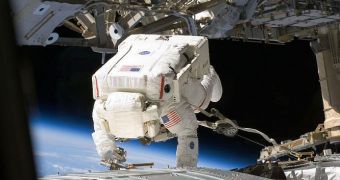The general feel among space analysts is that upcoming missions to other moons, planets and stars will be carried out by robots, or by cyborgs, but not likely by humans. It's only fitting that things should be set up like this too, they add.
According to studies, the number of advantages that robotic space exploration implies is simply overwhelming. Simply put, there is simply too much logistics involved with sending people to other places other than the Moon, maybe Mars.
We may therefore be entering what would be our species' second evolutionary inflection point. The first one was about 200,000 years ago, when significant climate change contributed to making our ancestors decided to migrate out of the African continent.
Only this time our migration may take place without us, which is strange to say the least. That's not to say that we won't play any role in it. In fact, our contribution will be essential.
What experts are saying is that the direct, hands-on experiences will not be lived by humans, but rather by robotic explorers. In a new book called The Eerie Silence, author Paul Davies explains that, if we ever meet alien explorers, they will most likely turn out to be automated as well.
The expert believes that (a potential) first contact will be made with artificial intelligence (AI)-empowered machines. Any alien race capable of space travel, he argues, would have figured out that robots are the best way to go about learning more about space.
Machines can endure freezing temperatures, can survive with lower demands, do not need extra space to move and can be remotely-controlled if AI technologies fail.
“I think it very likely – in fact inevitable – that biological intelligence is only a transitory phenomenon, a fleeting phase in the evolution of the Universe,” Davies says in the book.
“If we ever encounter extraterrestrial intelligence, I believe it is overwhelmingly likely to be post-biological in nature,” adds the British-born theoretical physicist, cosmologist, and astrobiologist.
The expert holds joint appointments as the Arizona State University (ASU) director of the Beyond Center for Fundamental Concepts in Science, and also co-director of the Cosmology Initiative.
“Robotic exploration probably will always be the trail blazer for human exploration of far space. We haven't yet landed a human being on Mars but we have a robot there now,” California Institute of Technology (Caltech) physicist Wolfgang Fink adds.
“In that sense, it's much easier to send a robotic explorer. When you can take the human out of the loop, that is becoming very exciting,” he concludes, quoted by Daily Galaxy.

 14 DAY TRIAL //
14 DAY TRIAL //